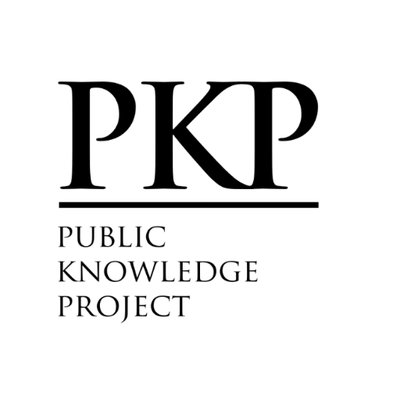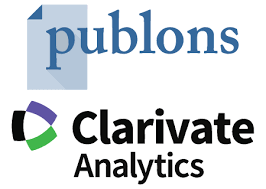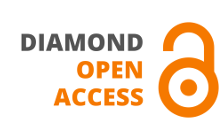Financial Self Efficacy: A Mediator in Advancing Financial Behavior among Accounting Students
DOI:
https://doi.org/10.59051/joaf.v11i2.392Keywords:
financial behavior, financial literacy, parental socioeconomic status, financial self efficacy, accounting studentAbstract
This research aimed to analyze the effect of financial literacy and parental socioeconomic statuson the financial behavior of undergraduate Accounting students in Bali with students’ financial self efficacy serving a mediator.This research employed a quantitative design with ex post facto approach and path analysis technique. Research data was collected by administering a financial literacy test on, and questionnaires distributed to, the sample selected using a purposive random sampling technique. The research sample consisted of undergraduate Accounting students in state university in Bali, numbering 180.The research results showed that financial literacy directly influencedfinancial efficacy, but the parents' socio-economic statusdid not have any direct influence. Second, financial literacy, parents' socio-economic status, and financial efficacy directly influencedfinancial behavior. Additionally, the results also showed that financial self efficacy wasunableto mediate financial self literacy’s and socioeconomic status’ relationships with financial behavior.This suggests that it is important to improvefinancial literacywhich will contribute to the improvement not only in students’ financial self-efficacy, but also good financial behavior among accounting students.
Downloads
References
Andhika, Y. H., & Damayanti, T. W. (2017). Niat Melakukan Pencatatan Akuntansi pada Usaha Kecil Menengah: Pengetahuan Akuntansi ataukah Herding? Jurnal Ekonomi Dan Bisnis, 20(2), 331. https://doi.org/10.24914/jeb.v20i2.664
Bandura, A. (2010). Self-Efficacy. In The Corsini Encyclopedia of Psychology. https://doi.org/10.1002/9780470479216.corpsy0836
Chen, H., & Volpe, R. P. (1998). An analysis of personal financial literacy among college students. Financial Services Review, 7(2), 107–128. https://doi.org/10.1016/S1057-0810(99)80006-7
Danes, S. M., & Haberman, H. (2007). Teen Financial Knowledge, Self-Efficacy, and Behavior: A Gendered View.
Dantes, N. (2012). Metode Penelitian (P. Christian, Ed.). Yogyakarta: Penerbit Andi.
de Bassa Scheresberg, C. (2013). Financial Literacy and Financial Behavior among Young Adults: Evidence and Implications. Numeracy, 6(2). https://doi.org/10.5038/1936-4660.6.2.5
Farrell, L., Fry, T. R. L., & Risse, L. (2016). The significance of financial self-efficacy in explaining women’s personal finance behaviour. Journal of Economic Psychology, 54, 85–99. https://doi.org/10.1016/j.joep.2015.07.001
Franendya, R. (2018). Ini Dia Empat Jenis Fintech di Indonesia. Retrieved April 2, 2020, from cnbcindonesia.com website: https://www.cnbcindonesia.com/tech/20180110145800-37-1126/ini-dia-empat-jenis-fintech-di-indonesia
Gutter, M. S., Garrison, S., & Copur, Z. (2010). Social Learning Opportunities and the Financial Behaviors of College Students. Family and Consumer Sciences Research Journal, 38(4), 387–404. https://doi.org/10.1111/j.1552-3934.2010.00034.x
Heckman, S. J., & Grable, J. E. (2011). “Testing the Role of Parental Debt Attitudes, Student Income, Dependency Status, and Financial Knowledge Have in Shaping Financial Self-Efficacy among College Students” by Heckman, Stuart J.; Grable, John E. - College Student Journal, Vol. 45, Issue 1, Ma. Colledge Student Journal, Online Research Library: Questia, 45(1). Retrieved from https://www.questia.com/library/journal/1G1-252632757/testing-the-role-of-parental-debt-attitudes-student
Henslin, M. J. (2006). Sosiologi Dengan Pendekatan Membumi. Jakarta: Penerbit Erlangga.
Herawati, N. (2018). Financial Learning: Is It The Effective Way to Improve Financial Literacy among Accounting Students? SHS Web of Conferences, 42, 00056. https://doi.org/10.1051/shsconf/20184200056
Herawati, N.T, Candiasa, I. ., Yadnyana, I. ., & Suharsono, N. (2018). Factors That Influence Financial Behavior Among Accounting Students in Bali. International Journal of Business and Administration,Vol. 9(No.3), 30–39.
Herawati, Nyoman Trisna. (2015). Kontribusi Pembelajaran Keuangan di PT dan Literasi Keuangan Terhadap Perilaku Keuangan Mahasiswa FEB Undiksha. Jurnal Pendidikan Dan Pengajaran Undiksha, Vol.48(1.3), 60–70.
Huston, S. J. (2010). Measuring Financial Literacy. Journal of Consumer Affairs, 44(2), 296–316. https://doi.org/10.1111/j.1745-6606.2010.01170.x
Laily, N. (2016). PENGARUH LITERASI KEUANGAN TERHADAP PERILAKU MAHASISWA DALAM MENGELOLA KEUANGAN. Journal of Accounting and Business Education, 1(4). https://doi.org/10.26675/jabe.v1i4.6042
Liu, F., Yilmazer, T., Loibl, C., & Montalto, C. (2019). Professional financial advice, self-control and saving behavior. International Journal of Consumer Studies. https://doi.org/10.1111/ijcs.12480
Lusardi, A., Mitchell, O. S., & Curto, V. (2010). Financial Literacy among the Young. Journal of Consumer Affairs, 44(2), 358–380. https://doi.org/10.1111/j.1745-6606.2010.01173.x
Qamar, M. A. J., Keemta, M. A. N., & Hassan, J. (2016). How Knowledge and Financial Self-Efficacy Moderate the Relationship between Money Attitudes and Personal Financial Management Behavior | Qamar | European Online Journal of Natural and Social Sciences. Europan Online Journal of Natural Adn Social Science, 5(2). Retrieved from http://european-science.com/eojnss/article/view/3234
Robb, C. A., & Woodyard, A. (2011). Financial Knowledge and Best Practice Behavior. Journal Of Financial Counseling and Planning, 22(1). Retrieved from https://www.academia.edu/25894720/Financial_Knowledge_and_Best_Practice_Behavior
Sitorus, R. (2016). Riset Perilaku Konsumen : Generasi Milenial Menabung untuk Konsumtif - Kabar24 Bisnis.com. Retrieved April 11, 2020, from Kabar24.Bisnis.com website: https://kabar24.bisnis.com/read/20160307/79/525973/riset-perilaku-konsumen-generasi-milenial-menabung-untuk-konsumtif
Soekanto, S., & Sulistyowati, B. (2010). Sosiologi Suatu Pengantar. Jakarta: Raja Grafindo Persada.
Widyawati, I. (2012). FAKTOR-FAKTOR YANG MEMPENGARUHI LITERASI FINANSIAL MAHASISWA FAKULTAS EKONOMI DAN BISNIS UNIVERSITAS BRAWIJAYA. Jurnal Akuntansi Dan Pendidikan, Vol 1(No 1), 89–99.
Downloads
Published
How to Cite
Issue
Section
License
Authors who publish with this journal agree to the following terms:
- Authors retain copyright and grant the journal right of first publication with the work simultaneously licensed under a Creative Commons Attribution License that allows others to share the work with an acknowledgement of the work's authorship and initial publication in this journal.
- Authors are able to enter into separate, additional contractual arrangements for the non-exclusive distribution of the journal's published version of the work (e.g., post it to an institutional repository or publish it in a book), with an acknowledgement of its initial publication in this journal.
- Authors are permitted and encouraged to post their work online (e.g., in institutional repositories or on their website) prior to and during the submission process, as it can lead to productive exchanges, as well as earlier and greater citation of published work (See The Effect of Open Access).






















